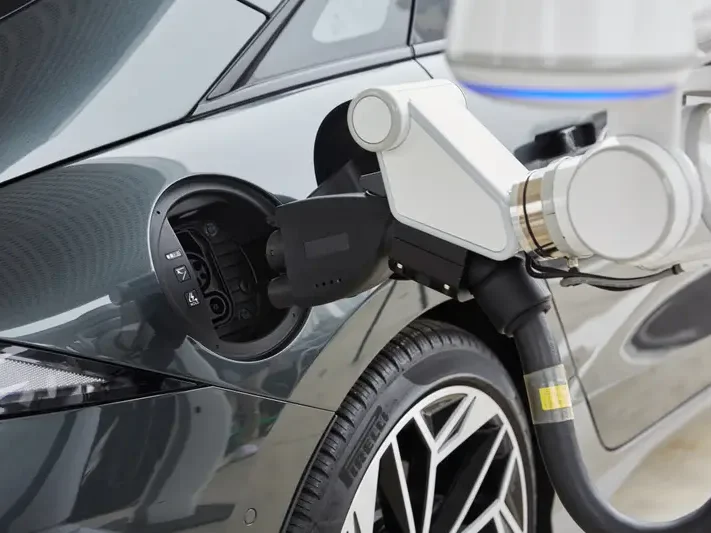Hyundai, the South Korean automotive giant, is gearing up to revolutionize the automotive industry once again, but this time, it’s not just with cars. With the announcement of its ambitious plans to create a robot army, Hyundai is signaling its intention to diversify its portfolio and step into the realm of robotics. This move poses an intriguing challenge to Tesla, the electric vehicle pioneer, as both companies vie for dominance in the rapidly evolving tech landscape.

Hyundai’s foray into robotics represents a bold strategic move, leveraging its expertise in manufacturing and technology to explore new avenues of innovation. The company aims to develop a wide range of robots designed to assist humans in various tasks, from household chores to industrial automation. These robots could potentially redefine the way we live and work, offering solutions to pressing societal needs such as aging populations and labor shortages.
One of Hyundai’s most notable ventures in robotics is the development of humanoid robots capable of mimicking human movements with remarkable precision. These advanced machines could find applications in areas such as healthcare, hospitality, and customer service, offering personalized assistance and companionship to individuals in need. Moreover, Hyundai envisions deploying robots equipped with artificial intelligence and machine learning algorithms, enabling them to adapt and learn from their interactions with humans over time.
The implications of Hyundai’s robot army extend far beyond mere technological innovation; they have significant implications for the future of transportation and mobility. As the automotive industry undergoes a profound transformation towards electric and autonomous vehicles, Hyundai’s expertise in robotics could give it a competitive edge in developing next-generation mobility solutions. Imagine fleets of self-driving cars seamlessly integrated with intelligent robots, offering on-demand transportation and delivery services in smart cities of the future.
However, Hyundai’s ambitious vision is not without its challenges and potential pitfalls. Building a robust ecosystem of robots requires substantial investment in research and development, as well as overcoming technical hurdles related to sensor technology, AI algorithms, and human-robot interaction. Moreover, there are ethical and societal considerations to address, such as privacy concerns, job displacement, and the potential for misuse of autonomous robots.
In the race for dominance in the burgeoning field of robotics, Hyundai faces stiff competition from industry incumbents and tech giants alike. Tesla, with its relentless pursuit of innovation in electric vehicles and artificial intelligence, poses a formidable challenge to Hyundai’s aspirations. Elon Musk, Tesla’s enigmatic CEO, has long championed the convergence of AI and robotics, envisioning a future where intelligent machines play a central role in shaping society.
Tesla’s recent advancements in AI and robotics, including its development of self-driving car technology and humanoid robots, demonstrate its commitment to pushing the boundaries of innovation. The company’s acquisition of robotics firms and strategic partnerships with leading AI research institutions further underscore its ambition to dominate the future of mobility and automation.
As Hyundai and Tesla compete for supremacy in the realm of robotics, their rivalry could catalyze a wave of innovation and technological progress with far-reaching implications. From self-driving cars to intelligent robots, the convergence of automotive and robotics technologies promises to revolutionize industries, reshape urban landscapes, and redefine the very fabric of society.
In conclusion, Hyundai’s announcement of its robot army marks a significant milestone in the evolution of the automotive industry and robotics. With its ambitious vision and formidable resources, Hyundai is poised to become a major player in the rapidly expanding market for intelligent machines. However, the road ahead is fraught with challenges and uncertainties, as Hyundai navigates the complexities of technological innovation, regulatory compliance, and societal acceptance. In this dynamic landscape, the rivalry between Hyundai and Tesla serves as a compelling narrative of competition, collaboration, and convergence in the pursuit of a smarter, more automated future.
